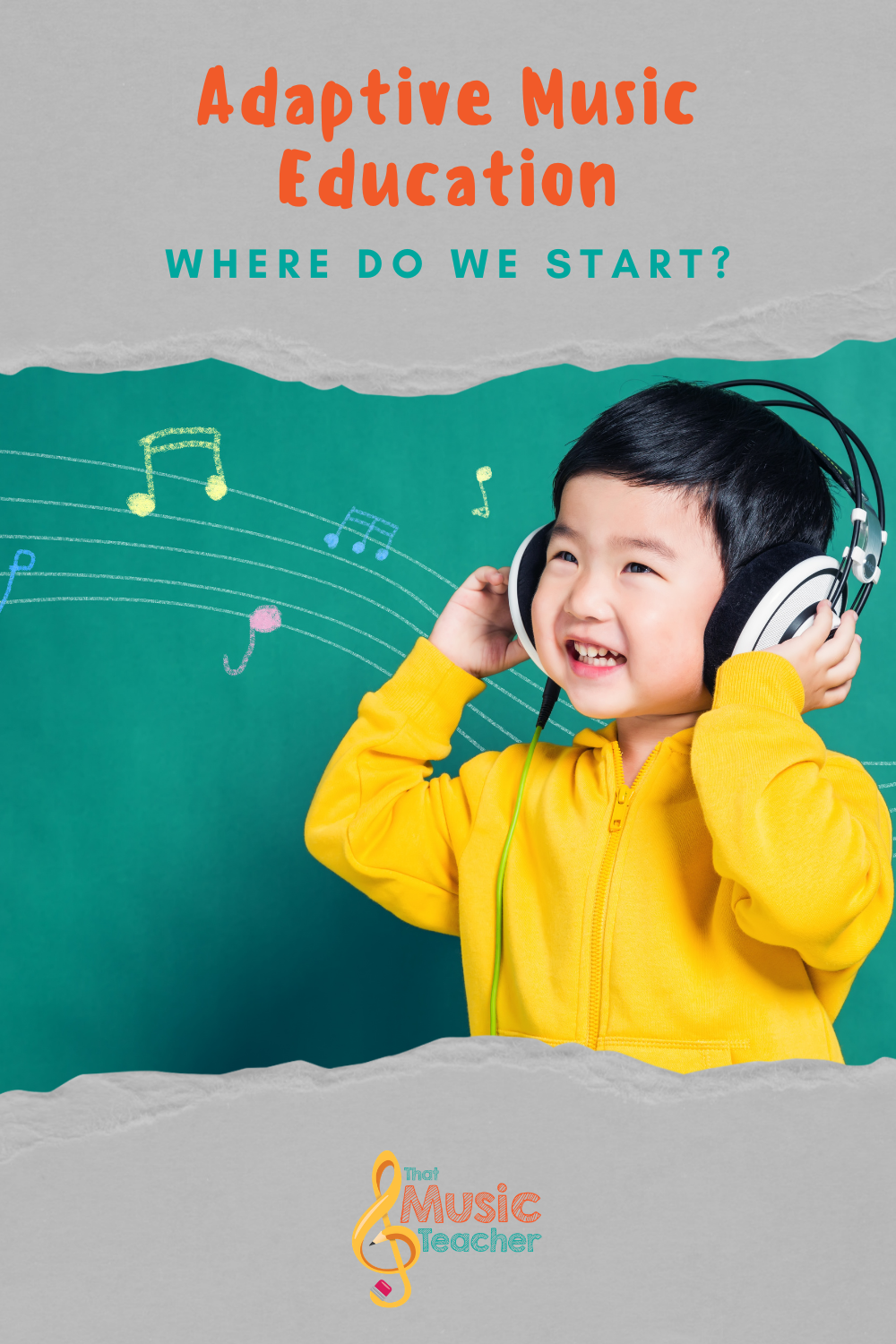
Adaptive Music Education: Where Do We Start?
Jan 13, 2021
This post is based on a podcast episode with Stephanie Powell. To listen to her episode, click here.
What is adaptive music education and why is it important?
Adaptive anything simply means giving someone the tools that they need to accomplish a goal. Adapting could be a tool that you use, changing an environment, or using a specialized instrument, to name a few. Most of the time with students with exceptional learning needs, it's breaking down the material and teaching it a little bit differently.
When you have kids who don't have language, or verbal language, or you have kids who have behavior issues that can kind of interfere with their learning. Most of the time all we need to do is change the way a concept is presented and changing the way that we would normally do things.
We should always assume that our students can, we should never assume that they can't. Some of these students have had doctors and therapists say they'll never do this, they'll never do that they can't do this, it's not going to happen.
It might take, you know, five years instead of two years, or it might take eight years instead of five years, or it might take a few months instead of one or two hours. But eventually these kids can. We shouldn’t ever accept, they can't or they won't, or they never will or it's not possible.
What do you think people get wrong about adaptive music education?
The first thing people often get wrong is simply not trying. There are teachers who make great effort. But unfortunately there are teachers who ask, “why are they in my class? Again? Why do they keep sticking them in my class?”
If that teacher just had the right tools and the right training and understanding of the situation it would be far less frustrating for everyone involved. Tools should be better available for educators.Training should be more available, and in certain areas there are bigger holes than others.
While there may not be many trainings readily available, there are some simple things we can do to better serve our exceptional learners. Be sure to look over your students IEP. Every educator, including music educators have every right to access a student’s IEP. There are often simple things that we can do to help our students have a more enjoyable experience.
The other information in an IEP that could help educators is to know who those students' helpers are. It might be a therapist, an aide, or another support person.
How can music educators best serve those students who are coming to music in a self-contained class?
When we have kids in a self contained setting, it may be easier to actually get more done or to make bigger progress because you can be more individualized to the students. Consider what the students already know then think about what the next step is going to be.
If we know that a student knows their letters, but don't necessarily know the note names, you can match letters notes. When you think about it, it's not that much different than teaching any other student, it's just that we have to break it down a little more meticulously and then maybe present and deliver the content differently.
We still teach in levels or layers. We teach this concept before a student can learn another concept. There's just some things that you don't necessarily think about like color-coded music. If your student doesn't know how to match colors, that's something you have to think about and consider.
Individual reinforcement can also be incredibly helpful. You may have students who work for breaks or students who work to pick their own song time. Other students may work for edible reinforcers. When we have a smaller, self-contained class, we have a little more freedom to do that.
Visual schedules are also incredibly beneficial for these populations of students. Being able to help each student know what comes next and what's expected of them in some sort of tangible way to see and interact with is also a big plus.
How can we best serve our exceptional learners that attend music with their typical peers?
Make the effort and know it's not going to be perfect. It may very well take a while to figure it out. We’re going to gain experience each year and with each student and we’re going to find that it comes easier as we go.
Start with making the effort. And when things go crazy, and it doesn't work, please do not get discouraged. That's, that's how it works in special education sometimes. We keep trying until you figure out what works, and then we stick to that until it stops working or we find a better way.

Don't miss a beat!
New moves, motivation, and classes delivered to your inbox.
We hate SPAM. We will never sell your information, for any reason.

